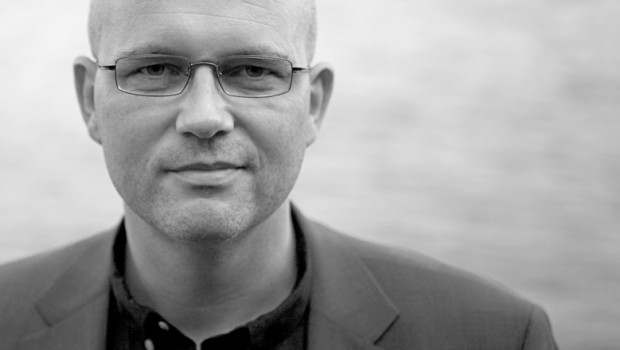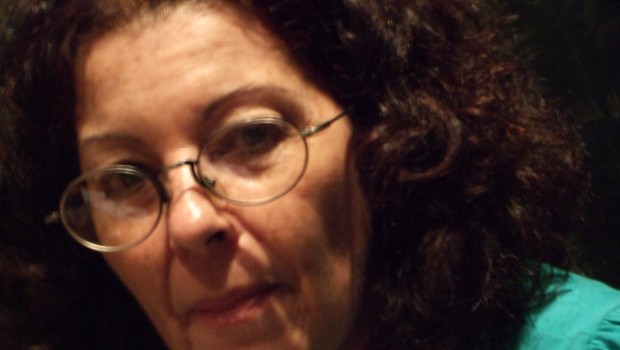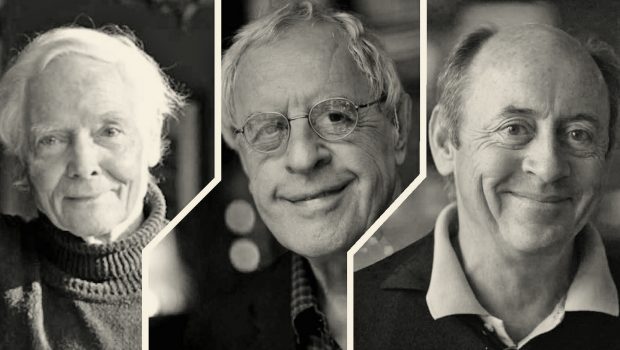Boredom & Drugs
Aburrimiento y drogas
Lars Svendsen
In a prose-poem Charles Baudelaire writes: “You must always be intoxicated. […] So as not to feel the horrible burden of Time that breaks your shoulders and bends you to the earth you must intoxicate yourselves without respite. […] So as not to be the martyred slaves of Time, intoxicate yourselves; intoxicate yourselves unceasingly.”
There are solid statistical grounds for assuming a connection between boredom and the use of drugs. The rush of intoxication can often banish boredom. Intoxication can be positive. It can be constructive and improve our lives. But it can, of course, also do the opposite. When drugs are to be mentioned in offi cial contexts nowadays, it seems as if it is unacceptable to talk about the positive aspects of them, but there is —despite everything—a reason why they are taken. In Junkie, William S. Burroughs argues that you become a junkie because you don’t have any motivation to do anything else, and that drugs win on a walk-over. But the substances undoubtedly have certain other qualities that motivate people to take them. The obvious answer as to why people take drugs is quite simple: They want to! I am not claiming that this answer is particularly profound or all that enlightening in itself, but it is an answer that is seldom mentioned. If one is to fi nd out why people take drugs, however, I believe that it is vital not to lose sight of this completely obvious point.
Two obvious reasons for taking drugs are quite simple: One can improve something one expects to be good, such as a party, and one can make something less sad, miserable or boring. There is no denying the fact that drugs often function excellently in both cases. Experiences of being intoxicated are often good experiences. It is also clear that taking drugs can be a directly meaningful act and can be an activity that is highly social. There are loads of rituals connected with the use of drugs, not least when it comes to sharing and the like, and these rituals vary from substance to substance. Ritual acts have a symbolic nature, and symbols are social entities. They are external representations of semantic entities and the inherent meanings are something round which we gather. In principle, anything can acquire such a symbolic function. Martin Heidegger writes about how things thing. This means that things have a unifying effect. The word ‘thing’ originally means collection or gathering. Things unite us and give us an identity. The example Heidegger himself provides is a jug of wine that collects people round a table. But it can just as well be a mirror with some lanes of amphetamine or cocaine. The mirror with drugs has a unifying effect on those gathered round it, and makes them a community. As far as the concept of group pressure is concerned, I fi nd it somewhat misplaced in this connection: One is not pressured to take drugs by the group; most often it is more a question of a willed identifi cation with a group. As far as certain groups are concerned, such an identifi cation involves taking drugs. This is experienced as a highly meaningful activity that contributes to giving those taking the drugs a common identity—and that furthermore separates them from decent people who do not take them. An alternative reality can be created to the outside world—the great big, serious world out there.
At this point, it is tempting to introduce Michel Foucault’s concept of ‘heterotopias’. Heterotopias are defi ned as ‘singular spaces in given social spaces whose functions differ from or are even the opposite of others’. The heterotopia is a space of otherness. Heterotopias do not fi t the existing order. In a heterotopia the other places of society are ‘represented, contested and inverted’; it is a place that is ‘outside all places, even though it can be localised’. It represents a free space that to a certain extent is outside the control and order of society. For my part, I can recall the old days of the 1990s when a rave party could be a heterotopia. Raves are apparently back in again now, but I have become too old to take part any more. The heterotopia is a space where one suddenly fi nds oneself on the other side of a border, where society stands on the outside and one fi nds oneself on the inside. To go to a rave party is to enter into an anti-structure that contradicts the structure of everyday life, where one is tied up in a well-organised life of work, school or study. And in this heterotopia intoxication plays a decisive role. One can admittedly go to a rave without taking drugs, but drugs play a vital role for the heterotopia’s identity —as a bearing element in its anti-attitude to society outside. And not least because of their contribution to letting loose the irrational, as in the bacchanalia of Antiquity. And when the morning comes, one leaves the heterotopia, one leaves the anti-structure and sleeps for a while before returning to the normal structure and order of society. This is experienced as a highly meaningful exception from everyday existence.
Most of those who take drugs can handle it very well. But not all. One of my best friends died from an overdose of heroin. He was not a regular user, and he got mixed up with a substance he didn’t know how to use. Other friends have ended up seriously dependent. This dependence has a social and mental component which, in my opinion, is more important than the chemical dependence. In other words, I believe that drug dependence cannot be properly understood as a purely physiochemical phenomenon. I am far more disposed to consider it as a dependence on a lifestyle —one that seems to give life some sort of meaning. The use of intoxicants ought, in short, to be considered as a meaning project. That does not mean of course that dependence is any simpler to break—but it gives it a different perspective.
Presumably, we can become dependent on virtually anything. At an abstract level, there is not all that much difference between various types of dependence, but in practice they express themselves very differently. But one dependence that is rarely mentioned is perhaps the most widespread of them all—that on meaning. Man is a being that is dependent on meaning. All of us have a great problem: Life must be fi lled with some content or other. We cannot cope with a life devoid of content. Lack of content is boring. And boredom can figuratively be described as a abstinence of meaning. Boredom can be said to be a discomfort that announces that the desire for meaning is not being satisfi ed. To remedy this, and in the absence of ‘the real thing’, whatever that might be, we resort to various substitutes for meaning. One such substitute is drugs.
For most people, this substitute for meaning is only a small element of a life with innumerable other meanings and substitutes for meaning. It can be something as simple as trying something once or twice. Most people stop there. Some go further and use drugs on a more regular basis. And then we have those who go even further and end up with a major problem. I would basically reserve the term ‘abuse’ for this last group —without this meaning that I consider all other forms of use to be unproblematic. What is it that typifi es this last group? Drugs become the dominant meaning in their life—that which everything else centres on. One has found a substitute for meaning that outdoes practically every other consideration. It is of course not so easy to give this up. In the fi lm Trainspotting the main character says that there is one great advantage about being hooked on heroin: While life is full of all sorts of problems for normal people, the heroin addict only has one single problem—how to get hold of dope.
As a drug-abuser one has content in one’s life: to get oneself a fi x. Once there is no more left, one has to fi ll the void that follows. This is where we fi nd the greatest challenge with regard to rehabilitation. For when this substitute for meaning disappears, when one is no longer intoxicated, what is one left with then? Where does one fi nd oneself when the drugs and everything connected to them are no longer there? If we compare with our own lives: Assuming you lose the possibility of doing what you are good at, your fi nancial situation plummets and you are cut off from all your old friends and acquaintances—how well would you cope? Such a situation would easily lead to a really profound form of boredom, where one is cut off from all known sources of meaning. It is the great lack of content that suddenly becomes the all-important thing in life. The person who decides to return to an earlier existence as a drug-abuser exercises a choice that in many ways is rational. At least, seen from a short-term perspective. It is a choice that consists in taking back an existing meaning in life rather than having an existence that can appear to be completely meaningless. The reason for cracking up is that the long-term advantages do not appear to be convincing enough in the present.
Some people crack up—others do not. This is not least due to the fact that abusers are precisely as different as all other people are. There are also considerable individual differences in people’s boredom thresholds. Some people have very low thresholds and other people very high ones. Generally speaking, thresholds seem to get higher over time, i.e. one is less plagued by boredom the older one gets. Research into boredom and drug use among teenagers shows that those who take drugs are generally speaking more active in their spare time than those who do not, and they state a need of excitement as the main source of motivation.
What applies to everyone with a drug problem is the necessity of building up new identity and a new meaning in life. Just thinking in terms of a freedom from something—in this case a particular dependence on drugs—is an empty freedom. One has to give freedom a content, and then it has to be a freedom towards something. A freedom to establish new relations to meaning. The need for meaning is a basic need. What is the meaning of life? That question is quite simply wrongly phrased. We ought to ask how we can establish meaning in life. And there is practically nothing that on its own can constitute suffi cient meaning in life. Not drugs either. Meaning in life consists of a network of submeanings. Such submeanings are typically relations to family and friends, perhaps a sweetheart, a home, a job, a hobby—and not least some goal. One must be able to position oneself in the world and have a fairly stable identity. To establish such a self calls for coherence, that one can tell a fairly coherent story about who one has been and who one will be. To have an identity is to have a conception of a narrative thread in one’s life, where past and future give meaning to the present.
It would seem that the future in a sense drops out from an abuser’s point of view. But a future perspective must be established, at least little by little. And in order to get a grip on the future, one must also take up the past. It is a past one has often kept at a distance by being completely absorbed in the present—a present that to a great extent has consisted of fi nancing and taking drugs. The narrative of one’s past, the acknowledgement of one’s past, is an initiation into who one is. The focus on the future is also utterly crucial. As mentioned earlier, it is often rational to take drugs from a shortterm perspective and irrational from a long-term one. Since people on the whole are more or less rational —or at least wish to be so—the rationality of the longterm perspective must be established. It is a matter of opening up the future as a fi eld of genuine possibilities rather than of focusing on killing the present.
And what about the boredom that was an important reason for beginning with drugs in the first place? We must at least try to create an acceptance of boredom. Boredom must be accepted as an inevitable fact, as life’s own gravity. But it does not make life unlivable. We must accept it as a subphenomenon among others in life rather than spending all our lives trying to run away from it.
Charles Baudelaire dice en un poema escrito en prosa: “Vive siempre intoxicado (…) Para no sentir el horrible peso del Tiempo que te rompe los hombros y te dobla hasta el piso, intoxícate sin descanso (…) Para evitar ser esclavos martirizados del Tiempo intoxícate; intoxícate sin cesar.”
Existen fundamentos estadísticos serios que suponen una conexión entre el aburrimiento y el uso de drogas. La rapidez de la intoxicación puede con frecuencia desaparecer el aburrimiento. Dicha intoxicación puede ser positiva, constructiva e incluso mejorar nuestras vidas. Sin embargo, también puede —claro está— hacer lo contrario. Actualmente cuando se mencionan las drogas en contextos oficiales parece inaceptable hablar de los aspectos positivos que tienen, pero igualmente existe una razón por la cual se consumen.
William S. Burroughs argumenta que uno se vuelve un “junkie” porque no se tiene motivación alguna para realizar cualquier otra cosa, y que las drogas ganan por mucho. No obstante, dichas sustancias indudablemente poseen otras cualidades que motivan a la gente a tomarlas. La respuesta obvia que responde al por qué la gente consume drogas es muy sencilla: ¡porque así lo quieren! No afirmo que esta respuesta sea particularmente profunda o que lo esclarezca todo, pero sí es una respuesta que rara vez se menciona. De cualquier manera, creo que si uno quisiera saber por qué la gente toma drogas es vital no perder de vista este punto bastante obvio.
Dos razones evidentes por las que se consumen drogas son muy simples: uno puede mejorar algo que espera que sea realmente bueno, como una fiesta; o bien, hacer que algo sea menos triste, miserable o aburrido. No hay nada que niegue el hecho de que las drogas, a veces, funcionan sumamente bien en ambos casos. Las experiencias vividas cuando se está intoxicado a menudo son buenas. También queda claro que tomar drogas puede ser un acto con un sentido determinado; y también, una actividad muy social. Hay muchos rituales relacionados con el uso de drogas —cuando llega el momento de compartir con otros en actos similares— y estos rituales varían de sustancia a sustancia. Los rituales tienen una naturaleza simbólica, y los símbolos son entidades sociales. Son representaciones externas de entidades semánticas y los significados inherentes son algo alrededor de lo que nos reunimos. En principio, todo puede adquirir una función simbólica. Martin Heidegger escribe cómo las cosas unen. Esto significa que las cosas tienen un efecto unificador. La palabra “cosa” originalmente significa colección o reunión. Las cosas nos unen y nos dan identidad. El ejemplo que el propio Heidegger usa es el de una jarra de vino que congrega a la gente a la mesa. Pero también puede tratarse de un espejo con unas líneas de anfetaminas o cocaína. El espejo con drogas tiene un efecto unificador para aquellos que están reunidos convirtiéndolos en una comunidad. En cuanto al concepto de la presión que ejercen los grupos, considero que no tiene mucha relación en esta cadena: el grupo no puede presionarnos a tomar drogas; casi siempre se trata de una cuestión de identificación voluntaria con el grupo. En ciertos grupos, dicha identificación implica el uso de drogas, la cual se experimenta como una actividad muy significativa que contribuye a dar a quienes consumen drogas una identidad común —y que además los separa de la gente que no las consume. Una realidad alternativa puede crearse del mundo exterior —el enorme y serio mundo exterior.
En este momento resulta tentador introducir el concepto de “heterotopías” de Michel Foucault, las cuales están definidas como “espacios singulares dentro de espacios sociales dados cuyas funciones difieren de o son opuestas a otras”. La heterotopía es el espacio de la otredad. Las heterotopías no concuerdan con el orden ya existente. En una heterotopía los otros lugares de la sociedad son “representados, refutados e invertidos”; es un lugar que está “fuera de todos los lugares; sin embargo puede ser localizado”. Representa un espacio libre que, hasta cierto punto, se encuentra fuera del control y orden de la sociedad. Recuerdo aquellos tiempos pasados de la década de 1990 cuando las fiestas “rave” podían ser heterotopías. Al parecer los raves están de vuelta, pero ya soy demasiado viejo para formar parte de ellos. La heterotopía es un espacio donde uno se encuentra repentinamente del otro lado de la frontera, donde la sociedad permanece en el exterior y uno se halla en el interior. Asistir a una fiesta rave es entrar en una anti-estructura que contradice la estructura de la vida cotidiana, donde uno está atado a la vida laboral, escolar o de estudio. Y es en esta heterotopía donde la intoxicación juega un papel decisivo. Uno puede admitir ir a un rave sin tomar drogas, pero éstas juegan un papel importantísimo en la identidad heterotópica —como un elemento de resistencia en su actitud contra la sociedad exterior. Y no en menor medida porque su contribución desencadene lo irracional, como en las bacanales de la antigüedad. Cuando llega la mañana, uno abandona la heterotopía y la anti-estructura y duerme, por un momento, antes de regresar a la estructura normal y al orden de la sociedad. Esta experiencia se vive como una excepción muy significativa de la existencia diaria.
Casi la mayoría de los que consumen drogas pueden controlarlo muy bien, pero no todos. Uno de mis mejores amigos murió de una sobredosis de heroína. No era un consumidor regular y se metió una sustancia que no sabía usar. Otros amigos acabaron siendo grandes dependientes. Esta dependencia tiene un componente social y mental, la cual, en mi opinión, es mucho más importante que la dependencia química. En otras palabras, creo que la adicción a las drogas no puede ser entendida cien por ciento como un hecho puramente fisicoquímico. La considero, por mucho, una dependencia a un estilo de vida —aquél que parece darle a la vida un cierto tipo de significado. Para decirlo en dos palabras: el uso de estupefacientes debe ser considerado como un proyecto con sentido. Eso no significa que la dependencia sea mucho más fácil de romper —pero le da una perspectiva diferente.
Tal vez podemos volvernos dependientes de virtualmente todo. En un nivel abstracto no hay mucha diferencia entre varios tipos de dependencias, pero en la práctica se expresan de maneras muy distintas. Sin embargo, rara vez se menciona la dependencia que es quizás la más generalizada de todas: la del significado. El hombre es un ser que depende de un significado. Todos tenemos un gran problema: la vida debe ser colmada de uno u otro contenido. No podemos lidiar con una vida carente de él. La falta de contenido es aburrida. Y el aburrimiento puede describirse en sentido figurado como una abstinencia al significado. Se podría decir que el aburrimiento es un malestar que anuncia la insatisfacción del deseo por el significado. Para remediar esto, y en ausencia de “la cosa real”, cualquiera que ésta sea, podemos recurrir a varios sustitutos de significado. Uno de ellos son las drogas
Para la mayoría de las personas, esta sustitución de significado es sólo un pequeño elemento de la vida con innumerables significados diversos y sustitutos de significado. Puede ser tan simple como probar algo una o dos veces. Muchas personas se detienen ahí. Otras van más lejos y usan las drogas con más regularidad. Y después tenemos a otros que incluso llegan más lejos y terminan con un serio problema. Básicamente reservaré el término “abuso” para este último grupo —sin este significado es que considero otras formas de uso no problemáticas. Entonces, ¿qué es lo que tipifica este último grupo? Las drogas se volvieron el significado predominante en sus vidas —aquél en el cual todo lo demás se centra. Uno ha encontrado un sustituto del significado que supera prácticamente cualquier otra consideración. Claro que no es tan fácil renunciar a esto. En la película Trainspotting, el personaje principal dice que hay una gran ventaja en engancharse con la heroína: mientras que la vida está llena de todo tipo de problemas para la gente normal, el adicto a la heroína sólo tiene un único problema: conseguir la droga.
Como adicto a las drogas uno le encuentra contenido a la vida: conseguirse una dosis. Una vez que ya no queda nada, uno tiene que llenar el vacío que le sigue. Es aquí donde encontramos el reto más grande en cuanto a la rehabilitación se refiere. Ya que cuando este sustituto de significado desaparece, cuando ya no se está intoxicado, ¿qué es lo que a uno le queda? ¿Dónde se encuentra uno cuando las drogas y todo lo relacionado con ellas ya no está? Si lo comparamos con nuestras vidas —en el supuesto de que pierdas la posibilidad de hacer aquello en lo que realmente eres bueno, tu situación financiera se desploma y te aíslas de todos tus amigos y conocidos— ¿qué tan bueno serías para sobrellevar las cosas? Tal situación podría llevarte fácilmente a una verdadera y profunda forma de aburrimiento, donde uno queda aislado de todas las fuentes conocidas de significado. Se trata del gran vacío de significado que de pronto se convierte en la cosa más importante en la vida. La persona que decide regresar a una existencia anterior como consumidor de drogas toma una decisión que, por muchos motivos, es racional. Al menos cuando es vista desde una perspectiva a corto plazo. Es una decisión que consiste en regresar a un significado ya existente en la vida más que tener una existencia que parezca completamente insignificante. La razón por la cual estas personas se vienen abajo es que las ventajas a largo plazo no parecen muy convincentes en el presente.
Algunas personas se vienen abajo; otras, no. Esto no se debe en menor medida al hecho de que los adictos son precisamente tan distintos como el resto de las personas. También existen serias diferencias individuales en los umbrales del aburrimiento. Algunas personas aguantan poco sin aburrirse y otras no. En términos generales los umbrales parecen crecer al paso del tiempo, i.e., uno se encuentra menos atormentado por el aburrimiento que los más viejos. La investigación sobre el aburrimiento y el uso de las drogas entre los adolescentes muestra que aquellos que consumen drogas son, en términos generales, más activos en su tiempo libre que aquellos que no las consumen y necesitan de la exaltación como fuente principal de motivación.
Lo que sucede en todo aquel que tiene un problema de drogas es la necesidad de construir una nueva identidad y un nuevo significado en la vida. Pensar sólo en términos de liberarse de algo —en este caso particular la dependencia por las drogas— es pensar en una libertad vacía. Uno tiene que darle a la libertad un contenido, y entonces convertirla en libertad hacia algo. Una libertad que establezca nuevas relaciones de significado. La necesidad de buscar significado es una necesidad básica. ¿Cuál es el significado de la vida? Esta pregunta simplemente está mal formulada. Debemos preguntarnos cómo podemos encontrar significado en la vida, y prácticamente no existe nada que, por sí mismo, pueda constituir suficiente significado en la vida. Ni siquiera las drogas. El significado en la vida consiste en una red de sub-significados, los cuales están típicamente relacionados con la familia y los amigos: tal vez una pareja, una casa, un trabajo, un pasatiempo —y no menos importante, una meta. Uno debe ser capaz de colocarse en el mundo y tener una identidad suficientemente estable. Para lograr establecer dicho ser, uno debe buscar cierta coherencia, que uno sea capaz de contar una historia lo suficientemente coherente acerca de lo que uno ha sido y será. Tener identidad es valerse de la concepción de un hilo narrativo en nuestra vida, donde el pasado y el futuro le dan significado al presente.
Parecería que, en un sentido, el futuro es eliminado desde el punto de vista del que abusa de las drogas, pero debe establecerse una perspectiva a futuro, al menos poco a poco. Y para lograr asir el futuro, uno también debe retomar el pasado. Es un pasado que con frecuencia hemos mantenido lejos al estar totalmente absortos en el presente —un presente que en gran medida ha consistido en pagar y consumir drogas. El relato de nuestro pasado, su reconocimiento, es una iniciación a lo que somos. La atención al futuro es también absolutamente crucial. Como ya se dijo antes, casi siempre es racional consumir drogas desde una perspectiva a corto plazo, e irracional a largo plazo. Debido a que la gente en su totalidad es más o menos racional —o al menos quiere serlo— debe establecerse la racionalidad a largo plazo. Es cuestión de abrir el futuro como un campo de verdaderas posibilidades más que concentrarse en matar el presente.
¿Y qué sucede con el aburrimiento que era una razón importante para comenzar con las drogas? Al menos tratemos de crear la aceptación del aburrimiento. Éste debe ser aceptado como un hecho inevitable, tal como la gravedad, pero eso no hace que la vida sea insoportable. Debemos aceptarlo como parte de la vida, entre tantas otras, en lugar de pasarnos la vida tratando de huir de él.










